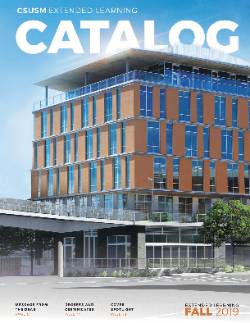 myCSUSM
myCSUSMOnline Bachelor of Arts in Sociology, Accelerated
Overview
This fully online Accelerated Bachelor of Arts in Sociology program is built for you to examine and address large- and small-scale social problems. The program starts two times a year, in the fall and spring and can be completed in 16 months with eight-week semesters.
Students who start programs during the summer term are ineligible to receive funding through Cal Grant
Request Information Program Flyer
Upcoming Online Information Sessions
Apply Now
New cohorts begin every fall and spring semester.
Application and document deadlines:
- Fall 2024: July 24, 2024
- Spring 2025: Aug. 7, 2024
View application instructions.Fall 2024 ApplicationSpring 2025 Application
Please note: We are temporarily accepting unofficial transcripts for applications for the Spring 2024 term.
Program Details
- ADMISSION
How to Apply
Admission Requirements
- Minimum 2.00 cumulative grade point average in all transferable units attempted
- 2.5 GPA for students who have already completed a bachelors
- Successful completion of a minimum of 60 transferable units
Prerequisites
- Successful completion of SOC 101 and SOC 201
- Successful completion of the following courses with a “C-” or better (12 units)
- Oral Communication (A1)
- Written Communication (A2)
- Critical Thinking (A3)
- Mathematics/Quantitative Reasoning (B4)
Please note: To be considered for admission you must reside in an approved state.
View Catalog Page
Please note: The Accelerated online program only offers the standard concentration
- Minimum 2.00 cumulative grade point average in all transferable units attempted
- COSTS
Cost Breakdown Semester Units* Subtotal** Fall Semester 1 - Block 1
8 $3,360 Fall Semester 1 - Block 2 7 $2,940 Spring Semester 1 - Block 1 7 $2,940 Spring Semester 1 - Block 2 8 $3,360 Summer Semester 1 - Block 1 6 $2,520 Summer Semester 1 - Block 2 6 $2,520 Fall Semester 2 - Block 1 8 $3,360 Fall Semester 2 - Block 2 8 $3,360 Total 58 $24,360 *Unit rate for this program is $420 (discounts available for active duty military, view details)
**University semester fees not included. View complete breakdown of Extended Learning fees. Semester tuition subtotals based on sample program sequence. All quoted tuition rates are based on previous academic years and are subject to change without notice.
Funding and Financial Aid
- This program is eligible for financial aid
- Visit the Extended Learning funding page or call 760-750-4850 to learn more about your funding options
- Federal VA educational benefits can be used for this program (not eligible for Cal Vet fee waiver)
- Cal Grant can be used for this program
- View veteran and military funding options
Please note: Students who start programs during the summer term are ineligible to receive funding through Cal Grant
- COURSE SEQUENCE
View course descriptions and specific program requirements on the Accelerated Sociology Catalog Page.
Please note: This program has a set schedule of courses that you are expected to follow as part of your cohort.
Sample Schedule Semester Course (units) Fall Semester 1 - Block 1
SOC 320 (4)
SOC 311 (4)
Fall Semester 1 - Block 2 SOC 360 (4)
SPAN 101 (3)
Spring Semester 1 - Block 1 SOC elective (4)
SPAN 102 (3)
Spring Semester 1 - Block 2 SOC 361 (4)
SOC elective (4)
Summer Semester 1 - Block 1 UDGE (3)
SPAN 201 (3)
Summer Semester 1 - Block 2 UDGE (3)
UDGE (3)
Fall Semester 2 - Block 1 SOC elective (4)
SOC elective (4)
Fall Semester 2 - Block 2 SOC 480 (4)
SOC elective (3-4)
Schedule is subject to change.
- FAQ
What is a cohort?
A cohort is a group of students who work through a curriculum together to achieve the same academic degree. Because they are accepted into the same program, take their classes together and graduate together, students in cohorts tend to form a strong support system and professional network that benefit them during their degree program and beyond.
What services do you offer to active military, veterans and dependents?
Please visit our military and veteran services page to learn how we can help.
What can I expect to learn in this program?
- How to analyze and interpret the diversity of social experience using a sociological perspective
- How to locate, analyze, assess, and communicate sociological scholarship
- How to articulate the ethical and social justice implications of sociological inquiry
- How to demonstrate the ability to employ a range of research strategies - quantitative and qualitative - to particular research questions, theoretical orientations, and social contexts
What are the overall course requirements?
- A survey of the social correlates of inequality (SOC 311, or SOC 313, or SOC 315)
- A foundational survey of sociological theory {SOC 320)
- Two courses in sociological research methods, one focusing on quantitative techniques (SOC 360), and one focusing on qualitative methods (SOC 361)
- One senior-level capstone experience (either SOC 480 or SOC 495)
- 15-16 units of upper division sociology electivies
What are the differences between CSUSM's Sociology and Criminology programs?
Complete the program in just 16 months with convenient online classes designed to help you advance within the field of sociology
This program will teach you how to analyze and communicate social experiences and how to articulate the implications of ethical and social justice issues
Program faculty are dedicated to helping you use key insights and analytic methods of sociology to improve the social conditions in which we and others coexist
Program topics include sociological theory, inequality, critical race, ethnic studies, gender in society, research methods and more
California leads the nation in employment of sociologists, with 990 practitioners, more than triple the number found in the next-highest state. Sociologists in California earn an annual mean wage of $95,550, the third-highest in the nation.
I went back to college after many years and doubted myself so many times. With the teaching, guidance and positivity of my professors and counselor, I have gained so much self-esteem that has helped me get through the college courses. I am the first in my family to graduate from college. This took time and a lot of it, but I know this was the right time for me.
Take the next step in your career
How to ApplyExtended Learning









